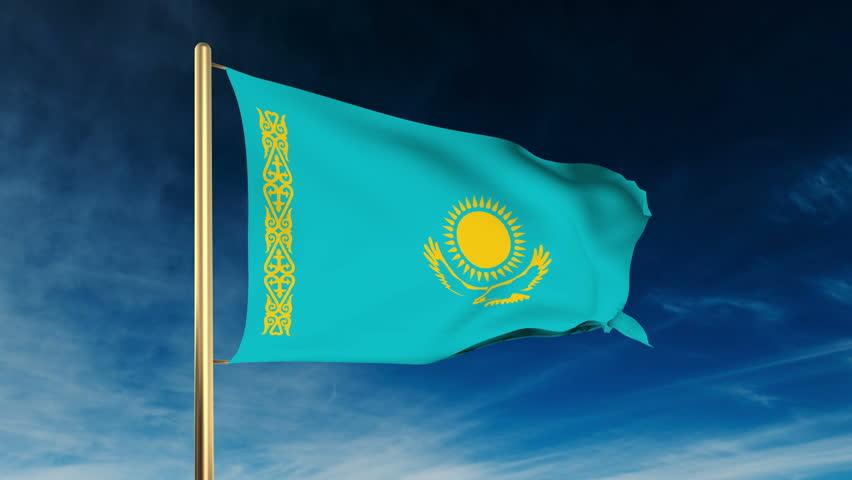Why is Kazakstan in flames?

Since the beginning of January, riots are raging in Kazakhstan. Started initially as rallies against the doubling of LPG prices in the western provinces, they quickly became nationwide. Demonstrations are no longer peaceful. Immediately after the police of some cities, like Aktobe, became neutral and stopped mopping up the protests, the riots became radical. President Kasym-Zhomart Tokayev’s decision to cut gas prices was perceived as a weakness of the authorities.
The demonstrators began to loot shops, rob banks, confiscate weapons and equipment from the police, beat and shoot the Interior Ministry officers. The former capital, Almaty, was completely seized by the bandits who took the city hall and the presidential residence. In these circumstances, Tokayev was forced to start an anti-terrorist operation and call the CSTO countries for help. Just a couple of hours later, Russia, Armenia, Belarus and Tajikistan sent a total of about 4,000 peacekeepers to guard the state facilities in Kazakhstan.
Before analyzing the deployment of CSTO troops, let's go back to the reasons that provoked the protests. Tactically, indeed, they are associated with rising fuel prices. The coronavirus pandemic has put a heavy burden on the economies of the developing countries, Turkey, for instance, is no exemption, as well as Kazakhstan. The country's budget is depleted, citizens are poorer then ever, thus, the rise in fuel prices triggered social unrest. Corruption problems are compounded by unemployment. The people, blinded by anger, according to some media outlets, are protesting not only against Tokayev but even against the first president of Kazakhstan, Nursultan Nazarbayev.
Some experts immediately began searching for a "foreign trail." Assumptions range from the Great Britain’s to Soros’ influence, as well as to overpricing caused by Russia. None of the hypotheses seems to be possible. The US and Western companies are deeply involved in the Kazakh oil industry (Exxon and Chevron). The West is not criticizing Tokayev or Nazarbayev. As for Russia, Kazakhstan is its ally, a member of the CSTO and the EAEU. There is no reason to shoot oneself in the foot. The riots in Kazakhstan were hardly initiated by China- Beijing, like Moscow, prefers not to interfere in the internal affairs.
Lets go back to the CSTO. Western media drew attention to the fact that a military alliance is being introduced into the territory of a member country for the first time to ensure security. We have not seen such a thing during the revolutions in Kyrgyzstan, the Maidan in Ukraine, the attempted coup in Belarus and during the Kyrgyz-Tajik border conflict. Tokayev asked for help, and the Kremlin could not refuse an ally. Otherwise, the same Western media could accuse the Kremlin of “surrendering an ally” and “losing face”. At the same time, there are still certain risks in bringing troops into Kazakhstan. Any clash between Russian peacekeepers and local demonstrators can take on a national dimension and lead to a guerrilla war. Therefore, the choice of the task - the protection of state objects - seems quite reasonable and logical. Moreover, Russia is working not alone, but in an alliance with other countries of the bloc, which makes the operation more representative and legitimate.
With the support of the CSTO and Russia, Tokayev is likely to hold on to power. Russia and Belarus already have experience in maintaining stability and immunity amid Euromaidans. How will the people of Kazakhstan react to the fact that the government will not change? It will have to combat the acute problems of corruption and unemployment.
07 January 2022 / 13:12
 Latest news
Latest news Latest news
Latest newsAram I: Mr. Erdogan, our ancestors were massacred by your ancestors, don't try to oppose diaspora to Armenia
24 April 2024 / 14:20
Azerbaijan and Armenia start border delimitation process
23 April 2024 / 11:38
Armenia premier: Our society asks why we continue to be member state of CSTO?
23 April 2024 / 11:30
Ilham Aliyev on his way to Moscow for talks with Vladimir Putin
22 April 2024 / 10:39
German Foreign Ministry reacts to agreement between Armenia and Azerbaijan on border delimitation
22 April 2024 / 10:32
Is Pashinyan going to attend Putin's inauguration?
17 April 2024 / 14:40
Russian peacekeepers’ pulling out from Nagorno-Karabakh has begun, Kremlin confirms
17 April 2024 / 14:34
Tokayev: Kazakhstan ready to offer platform for Armenia-Azerbaijan negotiations
15 April 2024 / 13:37
U.S. refuses to join Israel in retaliatory action against Iran
15 April 2024 / 11:33
Olivier Decottignies: France is providing Armenia military gear everyone’s desperate to get
09 April 2024 / 13:58
Ruben Vardanyan nominated for Nobel Peace Prize
08 April 2024 / 13:48
Serzh Sargsyan says Armenia-EU-US meeting will intensify Russia-West confrontation
05 April 2024 / 14:17
Pashinyan-Blinken-von der Leyen meeting underway in Brussels
05 April 2024 / 14:08
Aliyev expressed to Blinken Baku's dissatisfaction with the US-EU-Armenia trilateral meeting
04 April 2024 / 12:39
Peace process not the focus of Armenia-EU-US meeting – State Dept
02 April 2024 / 14:57

 25 April 2024 / 01:03
25 April 2024 / 01:03





